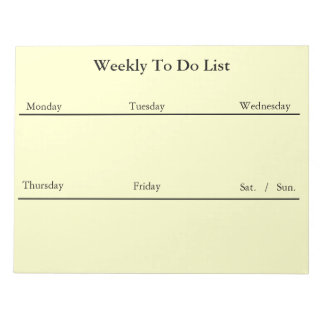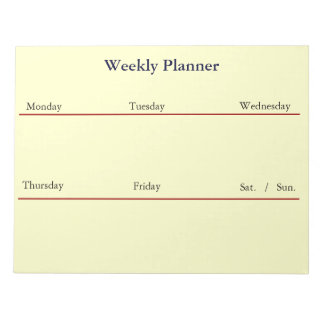Ask a business owner or marketer about the recent Facebook algorithm changes, and you’re likely to be met with a glare. The social networking site switched the way updates are seen with the aim of putting more high-quality content in newsfeeds and knocking out posts based on memes aimed at building cheap traffic. It was hard to argue with the theory, but in implementation it’s been borderline disastrous for many sites.
Here’s a more in-depth look at the changes that were implemented and exactly what impact they are having on businesses.
What Facebook Changed
Every social or search site is constantly updating its algorithm to reflect the evolving nature of its audience. So when Facebook announced in December that it was making modifications, it was hardly a surprise. The social media site outlined the changes in a blog post, but they boiled down to:
- More relevant articles in newsfeeds: Facebook wants what shows up in your newsfeed to closely mirror your tastes. So, for example, if you have clicked on a lot of articles about a certain sporting team, content about that team is more likely to come up in your feed.
- Higher-quality articles: Facebook says surveys have indicated that people like to see articles with news or intellectual value in their newsfeeds, versus cheap photo memes on trending topics posted just to grab traffic. That also means fewer memes popping up in a newsfeed.
- Related content: After clicking on an article in a newsfeed, several other related articles now appear below it on your newsfeed, giving more information on the topic that you’ve just read about.
- Bumping up older content: People often comment on a status and then don’t follow the conversation any further because they forget about it. Facebook is now bumping up previous posts to the top of newsfeeds to give people a chance to reengage with a status after others have posted on it.
Plus, Facebook takes its high-value concept very seriously. It wants to be seen by advertisers as a site that provides people with what they want, not a place where spammers go to play. That kills any sort of prestige that might attract advertising.
Declines in Organic Reach
Since the changes were implemented late last year, there’s been a backlash among businesses who say that their organic reach has taken a hit. Organic reach is basically the views that your content got without you advertising it. It includes people who saw your Facebook post from your page, as well as those who saw it on others’ pages (i.e., one of their friends commented on your status so it showed up in their newsfeed), plus viral views. Organic reach is separate from paid reach, which includes everyone who saw your content stemming from an ad.
The numbers seem to back up these complaints. For example, data culled by Moz from Edgeranker found that organic reach measured as a percentage of fans who saw a post fell from 26 percent in September 2012 to 7.7 percent in December 2013, when the new algorithm went into effect. That’s a huge dropoff.
Another study done right after the change was implemented found that reach plunged by 44 percent in the week after the switch. Surprisingly, only one page of the hundreds studied by Ignite Social Media saw organic reach rise.
Facebook has argued that while reach has fallen, engagement has actually remained strong. That backs up its argument for relevancy, meaning that it’s essentially trimming the fat. While fewer people may see your status updates, the ones who do see them are also the ones most likely to click or respond. And isn’t that the goal of any social media post? Still, businesses seem unconvinced that this is actually the case and argue they’re missing out on thousands of likes and shares because of the change.
How Businesses Can Increase Reach
Clearly it’s a bold new world of Facebook. Most businesses have spent the past few months kvetching about the change, but it seems unlikely to be abandoned anytime soon. Facebook made a few further tweaks in January 2014 to its policies to devalue text-only posts from businesses after noting that they generate less interaction than text-only posts from friends.
So how can businesses make sure that their posts are still being seen with all the changes? Here are a few ideas that should boost those sagging organic reach numbers:
- Make sure content is 100 percent unique. If lots of businesses are posting about the same subject, your post is much less likely to be seen because Facebook starts thinking you’re piggybacking on a meme. Whenever possible, post about a subject no one else is talking about.
- Try story bumping. Remember how one of those Facebook changes was bumping engaging but older statuses back into the newsfeed? Use this to your advantage. Post content that people are likely to comment on to get your status bumping back up into people’s newsfeeds.
- Include high-quality links. Quality content will always be judged kindly by Facebook. The better your link, the better the chance people will see it.
- Avoid text-only statuses. It’s easy to get lazy on Facebook, posting just a couple of words to give your page the appearance of activity. But asking “How’s everyone doing today?” won’t get you as much of that key engagement as planning out a post with pictures, video or other visual elements. Think of Facebook as a needy lover: The more attention you give it, the happier it is.
Fighting an 800-pound gorilla is pointless. While it’s easy to complain about how Facebook’s algorithm changes have hurt businesses, it’s smarter to funnel that energy into figuring out what works best with this new system. Experiment with different approaches and keep a record of how your posts do. Soon you’ll figure out the secret to raising your reach once again.








No comments:
Post a Comment